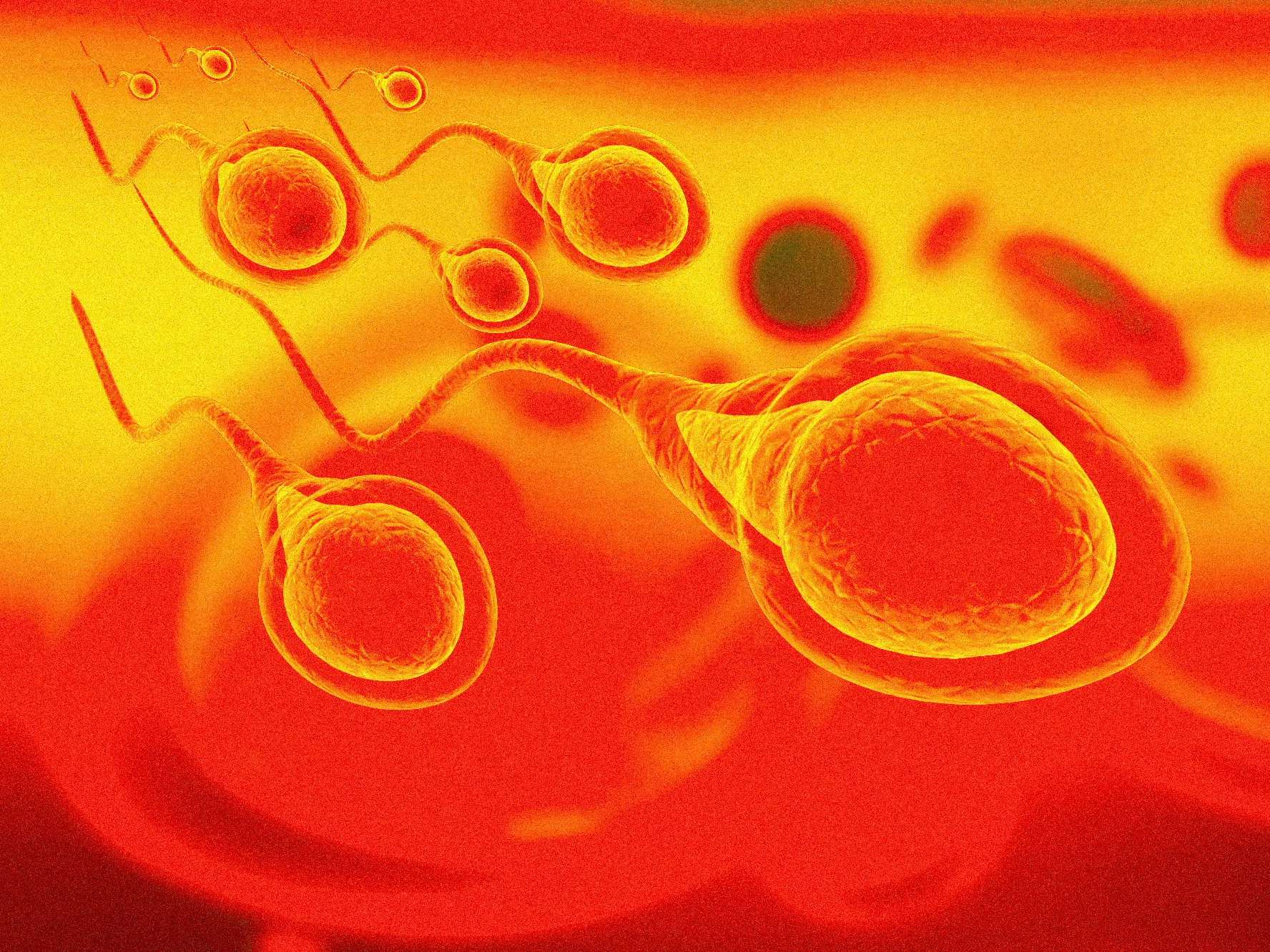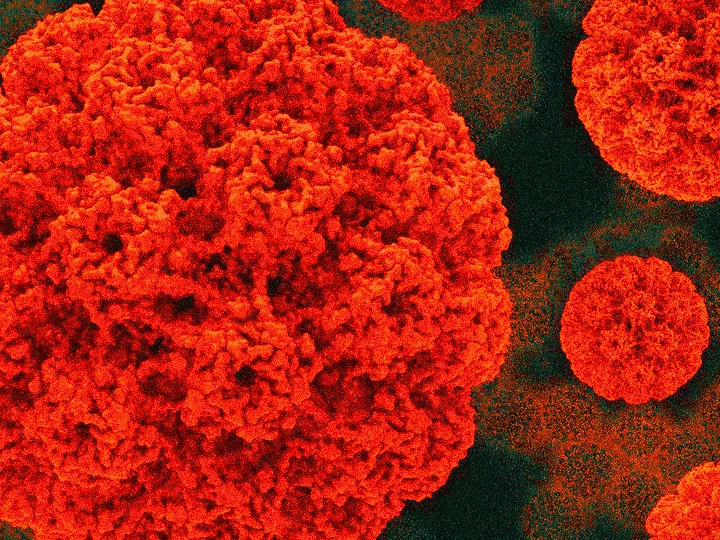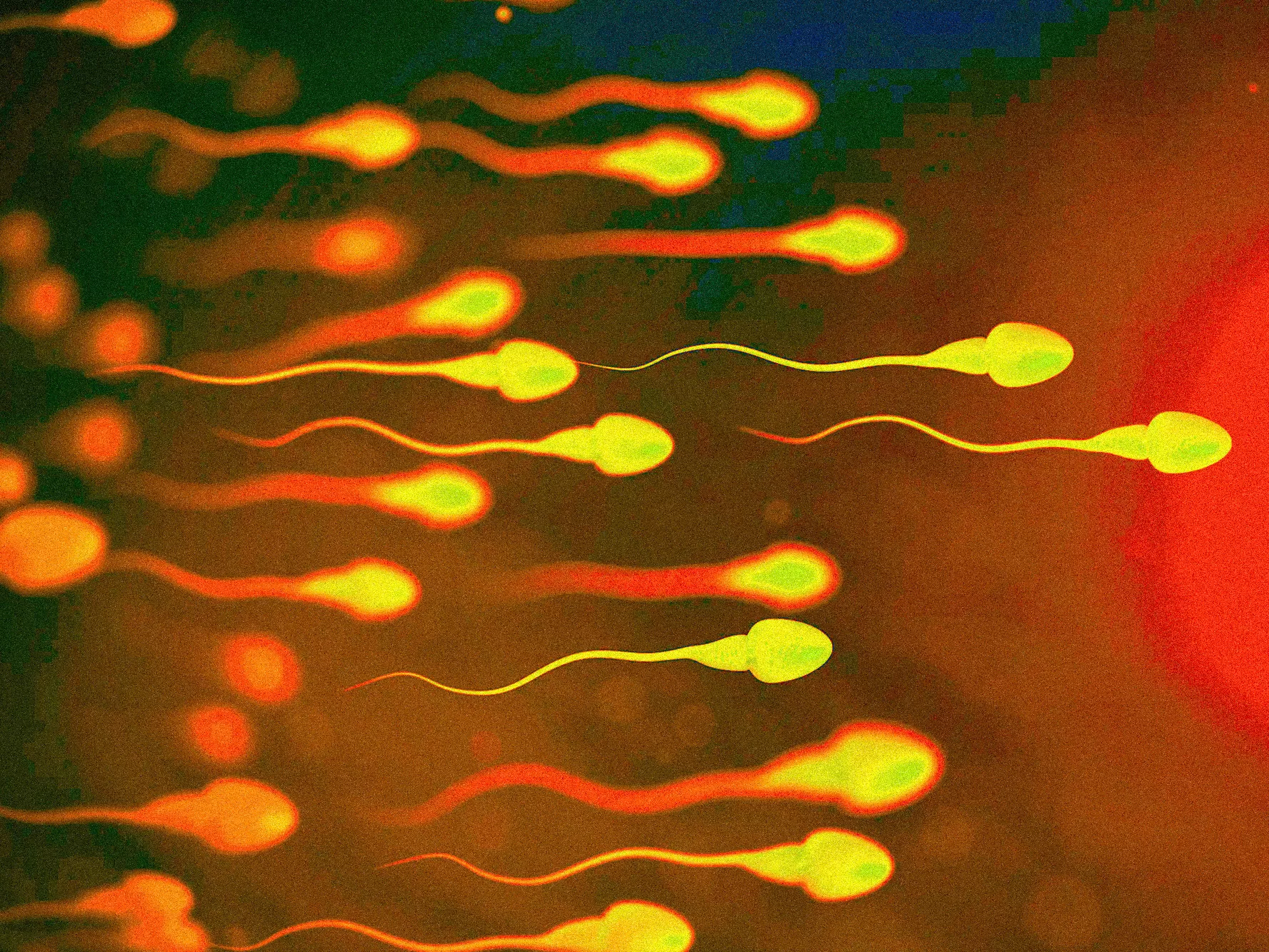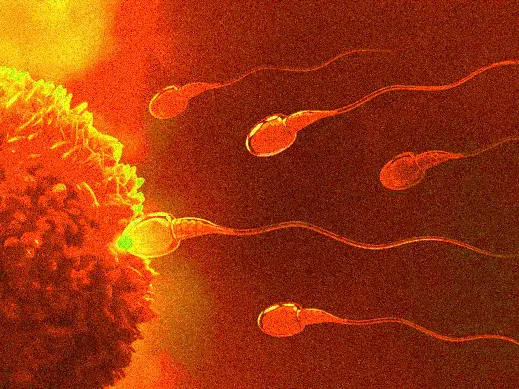What Causes Infection in Sperm and Can We Detect the Infections with Sperm Analysis or Sperm PCR Test
4330
What causes infection in sperm and can we detect the infections with sperm analysis or sperm PCR test
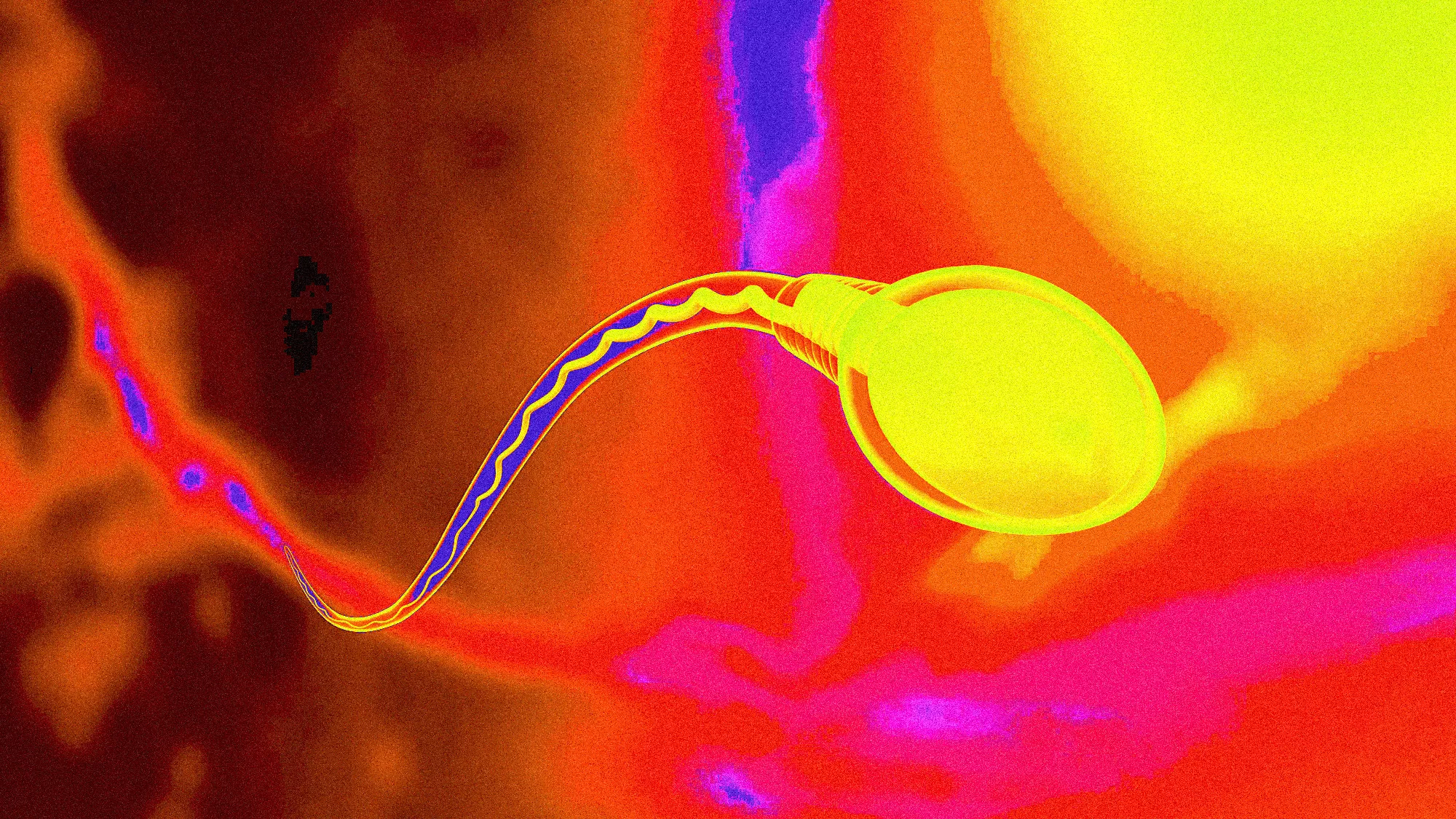
What causes infection in sperm and can we detect the infections with sperm analysis or sperm PCR test | PULSE CLINIC - Sexual Health Matters
One of the most significant factors contributing to infertility is related to male sperm, including issues like unhealthy sperm and low sperm count. Various causes can lead to these problems, such as hormonal imbalances, blockages in the vas deferens, inflammation of the seminal vesicles, and chromosomal abnormalities. Additionally, lifestyle choices—like alcohol and tobacco use, excessive screen time from mobile phones and laptops—as well as medical conditions such as diabetes, thyroid disorders, hernias, obesity, and varicocele, all contribute to male infertility.
Book Your Appointment Today!
Contact us at info.bkk@pulse-clinic.com or chat on your preferred platform:
![]() +66 65 237 1936
+66 65 237 1936  @PULSEClinic
@PULSEClinic ![]() PulseClinic
PulseClinic
Some factors that can lead to unhealthy sperm or low sperm count include:
- Hormonal reason
- Blockage in vas deferens
- Absence of Seminal Vesicle or Inflammation of Seminal Vesicle.
- Chromosomal abnormality
- Unhealthy Lifestyle (Smoking, Alcohol, Drugs, Obesity)
- Diabetes, Thyroid.
- Excessive Use of Laptops and mobile Phones and radiation exposure.
- Varicocele, Hernia.
How Do Sperm Get Affected?
Many risk factors are associated with low sperm count and other related issues. Some of these include:
- Alcohol consumption
- Tobacco use
- Being overweight
- Using certain illicit drugs
- Having past or current infections
- Experiencing severe depression or stress
- Sustaining trauma to the testicles
- Exposure to toxins
- Overheating the testicles
- Being born with a fertility disorder or having a family history of such disorders, like a brother or father with the condition
- Having a history of specific medical issues, including tumours and chronic illnesses
- Undergoing cancer treatments, such as radiation
- A history of undescended testicles
- Taking specific medications
- Having had a vasectomy or major abdominal or pelvic surgery
Additionally, Escherichia coli, a rod-shaped Gram-negative bacterium, has been identified as a cause of semen contamination and genital tract infections in men.
Types of Infected Semen and Their Causes
Infections of the male genitourinary tract contribute to approximately 15% of male infertility cases. Both acute and chronic infections, along with associated inflammation in the male reproductive system, can negatively impact sperm function and disrupt the entire spermatogenic process, leading to both qualitative and quantitative changes in sperm. Recent studies indicate that even the mere presence of bacteria in semen samples can affect sperm quality. These bacteria typically come from the patient's urinary tract or can be transmitted from a partner during sexual intercourse.
Types of Semen Infections
Yellow semen:
Urine and sperm are both expelled from the body through a tube called the urethra. If urine remains in the urethra, it can mix with semen, leading to a yellowish discoloration. Semen may also appear yellow due to a high concentration of white blood cells, a condition known as leukocytospermia or pyospermia. This serious condition can harm sperm and potentially lead to infertility.
Prostate infection:
This occurs when bacteria from the urine enter the prostate, resulting in a yellowish-green discoloration of the semen. The bacteria then infect the semen itself.
Bacterial infections:
These can lead to sperm infections and may contribute to infertility. Gonorrhea is a type of bacterial infection that can cause serious issues in the genital tract.
Viral infections:
These are infections like Herpes Simplex and HIV.
Fungal infections:
One example is Candida albicans. Sperm infections can pose a major infertility issue and may also be transmitted to female partners.
Sperm Infections: Where do they come from?
The bacteria responsible for semen contamination typically originate from the patient’s urinary tract or can be transmitted from a partner during sexual intercourse. The most common microorganism found in men with genital tract infections or semen contamination is Escherichia coli.
Infections in the reproductive tract can result in bacteria in sperm. Some common causes of these infections include:
1. Sexually transmitted infections (STIs): Infections such as chlamydia and gonorrhea can be passed through sexual contact and impact sperm.
2. Urinary tract infections (UTIs): Bacterial infections in the urinary tract can sometimes spread to the reproductive system, causing sperm infections.
3. Prostatitis: Inflammation or infection of the prostate gland can affect sperm health and function.
4. Epididymitis: Infection or inflammation of the epididymis (the tube that carries and stores sperm) can lead to sperm infections.
5. Orchitis: Inflammation or infection of the testicles can influence sperm production and quality.
6. Balanitis: Infection or inflammation of the foreskin or glans of the penis may potentially result in sperm infections.
7. Varicocele: Enlarged veins in the scrotum can cause testicular overheating, potentially impacting sperm health.
8. Injury or trauma: Damage to the testicles or reproductive system can introduce bacteria and lead to sperm infections.
9. Poor personal hygiene: Inadequate cleaning of the genital area can increase the risk of bacterial growth and sperm infections.
10. Unprotected sex: Engaging in sexual activity without a barrier method (e.g., condom) can expose sperm to potential infections.
11. Obstructed reproductive ducts: Blockages in the ducts that carry sperm may lead to bacterial accumulation and result in infections.
Symptoms
Symptoms may include discomfort, discharge, or pain during ejaculation; however, some infections can be asymptomatic.
Several factors can contribute to male infertility, such as lifestyle choices, environmental influences, health conditions, access to medical care, and infections caused by pathogenic microorganisms. Bacterial infections of the male reproductive system can lead to various reproductive disorders.
Microorganisms, including bacteria, viruses, and parasites, can infect the male reproductive system and trigger inflammatory responses that impair fertility. Bacteria typically infect the urethra, seminal vesicles, prostate, epididymis, vas deferens, and testes as they travel through the reproductive tract. Infections from bacteria like Chlamydia trachomatis, Neisseria gonorrhoeae, and Brucella are responsible for approximately 15% of male infertility cases.
FAQs
Can sperm infections be treated?
Yes, most infections can be effectively treated with antibiotics or other medications.
Do sperm infections always cause infertility?
Not necessarily, but they can diminish fertility potential.
How are sperm infections diagnosed?
Through semen analysis and STI testing.
Can lifestyle changes enhance sperm health?
Yes. Quitting smoking, reducing alcohol consumption, maintaining a healthy weight, and avoiding excessive heat to the testicles can all improve sperm health.
Are sperm infections a common cause of infertility?
Yes, they are a significant factor that can affect male fertility.
How can I prevent sperm infections?
Practicing safe sex, leading a healthy lifestyle, and scheduling regular check-ups can help prevent sperm infections.
Can FertilTree IVF Centre assist with fertility issues related to sperm infections?
Yes, our IVF centre provides comprehensive treatments and expert consultations to address your concerns.
Does semen contain bacteria?
Yes, semen can harbor bacteria. When bacteria are present in the semen, it is known as bacteriospermia.
What causes bacteria in sperm?
Bacteria in sperm can originate from the urinary tract or be transmitted during sexual intercourse.
Does sperm contain germs?
Yes, infections can introduce germs and viruses into sperm.
Can sperm cause infections?
Semen can alter the pH level in the vagina, potentially leading to increased bacterial growth.
What causes infections in sperm?
Among the causes of infections in sperm that are commonly seen are:
- Sexually transmitted infections (STIs)
- Urinary tract infections (UTIs)
- Prostatitis
- Epididymitis
- Orchitis
- Balanitis
- Varicocele
- Injury or trauma
- Poor personal hygiene
- Unprotected sexual intercourse
- Obstructed reproductive ducts
- Weak immune system
- Invasive medical procedures
- Uncontrolled diabetes
- Use of contaminated objects
- Chronic use of antibiotics
- Chemical exposure
- Unresolved urinary tract abnormalities
- Fungal infections
- Rare genetic conditions
- Mumps
- Retrograde ejaculation
- Overuse of lubricants
- Allergies
- Excessive alcohol consumption
- Smoking
- Chemical irritants
- Testicular torsion
- Vasectomy complications
- Poor diet
- Autoimmune conditions
- Hot tub or sauna use
- Medications
- Exposure to radiation
- Testicular cancer
- Obesity
- Use of illicit drugs
- Excessive cycling
- Certain chronic illnesses
- Psychological stress
- Dehydration
- Inflammatory bowel disease (IBD)
- Excessive heat exposure
- Cryptorchidism
- Chemotherapy or radiation therapy
- Certain medications
- Chronic stress
- Environmental toxins
- Certain surgeries
- Testicular injury
- Hormonal imbalances
- Certain occupations
- Ageing
- Poor blood circulation
- Structural abnormalities
- Allergic reaction to semen
- Uncontrolled high blood pressure
- Overactive immune response
- Genetic disorders.
A low sperm count, known as oligospermia, can have a significant impact on male fertility and overall reproductive health. It decreases the chances of successful fertilization, making it more difficult for couples to conceive naturally.
This condition can lead to emotional stress and strain in relationships. Furthermore, a low sperm count may indicate underlying health issues, such as hormonal imbalances, genetic disorders, or infections that need medical attention. In some cases, assisted reproductive technologies like in vitro fertilization (IVF) may be necessary to achieve pregnancy.
Addressing low sperm count typically involves lifestyle changes, medical treatments, and sometimes long-term management of related health conditions.
A sperm count test, or semen analysis, is a diagnostic procedure used to assess the health and viability of a man's sperm. It is essential for evaluating male fertility and diagnosing potential infertility issues. The primary purposes of semen analysis include:
- Fertility Assessment: Determining if the sperm count and quality are adequate for fertilizing an egg.
- Vasectomy Effectiveness: Confirming the absence of sperm following a vasectomy.
- Diagnosis of Medical Conditions: Identifying infections, hormonal imbalances, or genetic conditions that may affect sperm production.
What is the Sperm Count?
Sperm count is the total number of sperm in a man’s ejaculate. It’s calculated by counting sperm in a sample and multiplying by semen volume. Remember, sperm and semen are different.
Sperm
Sperm cells, or spermatozoa, are male reproductive cells with a head and a tail called a flagellum. They fertilize a female egg during conception.
Semen
Semen, or seminal fluid, is a male reproductive fluid with a whitish colour. It’s ejaculated during sex and helps sustain sperm until reaching the female egg.
Define “Normal” Sperm Count
Sperm count varies based on factors like age and health. According to WHO, it ranges from 39 to 928 million. Oligospermia is a low sperm count per mL of semen.
- Mild oligospermia = 10 to 15 million sperm/mL.
- Moderate oligospermia = 5 to 10 million sperm/mL.
- Severe oligospermia = 0 and 5 million sperm/mL.
Contact us at info.bkk@pulse-clinic.com or chat on your preferred platform:
![]() +66 65 237 1936
+66 65 237 1936  @PULSEClinic
@PULSEClinic ![]() PulseClinic
PulseClinic

Poor nutrition and oxidative stress can lower your sperm count. Supplements can counter nutritional deficiencies and boost antioxidant levels, safeguarding sperm. The nutrients below can increase sperm count:
Vitamin C
Vitamin C is a crucial antioxidant. Humans can’t produce it like other mammals, so we must obtain it from our diet. Research suggests vitamin C may improve sperm health, including count. In a study, vitamin C doubled sperm count for some. It also boosted sperm motility and reduced deformities.
Vitamin B12
Vitamin B12 is vital for cellular energy. It is crucial for sperm production. Researchers found supplementing with B12 is as effective as antioxidants for supporting a healthy sperm count.
Zinc
Zinc is crucial for men’s health, supporting testosterone, fertility, and muscle growth. Low zinc levels are linked to reduced fertility, poor sperm quality, and a low sperm count. Eating foods like red meat, eggs, and oysters can provide enough zinc, but supplements are an option. Zinc also helps maintain male hormones during intense exercise, supporting fertility and sperm count.
Add us on Line and stay in touch.
Vitamin D
Vitamin D acts as both a vitamin and hormone and impacts various body functions, including male fertility. A 2019 review of 18 studies revealed that higher vitamin D levels are linked with better fertility and sperm count. Given the high prevalence of vitamin D deficiency, it is advisable to get it from food, sunlight, or supplements, especially in colder or cloudy areas.
Folate
Folate is another essential B vitamin for fertility and has been shown in some studies to boost sperm count when supplemented.
CoQ10
CoQ10 is an enzyme and antioxidant that shields sperm from damage like oxidative stress. It is naturally found in seminal fluid, and higher levels are linked to better sperm count and motility. Studies reveal that taking CoQ10 supplements can enhance its presence in semen, thus improving fertility and increasing sperm count. Fertility specialists highly recommend CoQ10 for boosting sperm count, making it a valuable addition to your routine.
Ashwagandha
Ashwagandha is a shrub from India and North Africa used in Ayurvedic medicine for its many benefits. Research suggests it contains compounds like withanolides that may aid fertility. A study showed a significant increase in semen volume, sperm motility, and sperm count with ashwagandha use. Though results may vary, adding an Ashwagandha supplement to your routine could benefit sperm count.
Shilajit
Shilajit is a dense substance made from fossilized plant remains. It is rich in various minerals, especially in our mineral-depleted environment. Research indicates it can enhance testosterone levels and increase sperm counts by up to 64%.
Omega 3 Fatty Acids
Omega-3 fatty acids are vital fats with numerous health advantages. They offer crucial structural support to various cells, including sperm. Research indicates a strong link between omega-3 levels and male fertility.
Lycopene
Lycopene is commonly found in tomatoes and offers more than just colour. Research suggests it may enhance sperm counts by up to 70%. Additionally, several other fruits are known to boost sperm count and motility. Including plenty of tomatoes in your diet or taking a lycopene supplement daily could aid in supporting sperm count and fertility health.
Fish Oil
Omega-3 fatty acids are crucial for male fertility. Besides ensuring sufficient omega-3 intake, maintaining a balanced omega-3 to omega-6 ratio is essential. The simplest method to achieve this balance is by supplementing with omega-3. However, it’s important to note that certain omega-3 fish oil supplements may contain contaminants such as heavy metals or oxidized fats. Hence, not all fish oils are of the same quality.
How Long Should You Take Vitamins to Boost Sperm Count?
Most fertility experts suggest taking supplements for 90 days or longer to get the best result, as sperm usually take 72-90 days to develop.
Although these vitamins and supplements can enhance sperm count, lifestyle factors should also be considered. Fertility is linked to broader health indicators, such as energy levels and body composition. Here are some extra tips that may enhance your reproductive health.
- Limiting alcohol consumption
- Quit smoking
- Exercise regularly
- Relax and get enough sleep
- Consuming foods high in antioxidants
- Consuming healthy fats
If lifestyle changes don’t increase your sperm count, fertility treatments could improve your chances of conceiving. Your healthcare provider may suggest one or more of the following options: antibiotics, Serophene or Clomid, Gonal-F RFF Redi-ject, Choragon, Femara, intrauterine insemination, or in vitro fertilization (IVF).
We’re here to help
With whatever you’re experiencing, you are not alone. PULSE Social Enterprise is here for any concerns and questions that you might have about your health.
From general wellness to mental well-being to sexual health, we will be sure to give you fast, reliable, and safe diagnosis, treatment, and consultation.
Contact us at info.bkk@pulse-clinic.com or chat on your preferred platform:
![]() +66 65 237 1936
+66 65 237 1936  @PULSEClinic
@PULSEClinic ![]() PulseClinic
PulseClinic
Trust PULSE CLINIC to take care of your health like other 45000 people from over 130 countries. We provide discreet professional service with high privacy. Here to help, not to judge.
Loading...
Clinic Locations
Loading...


